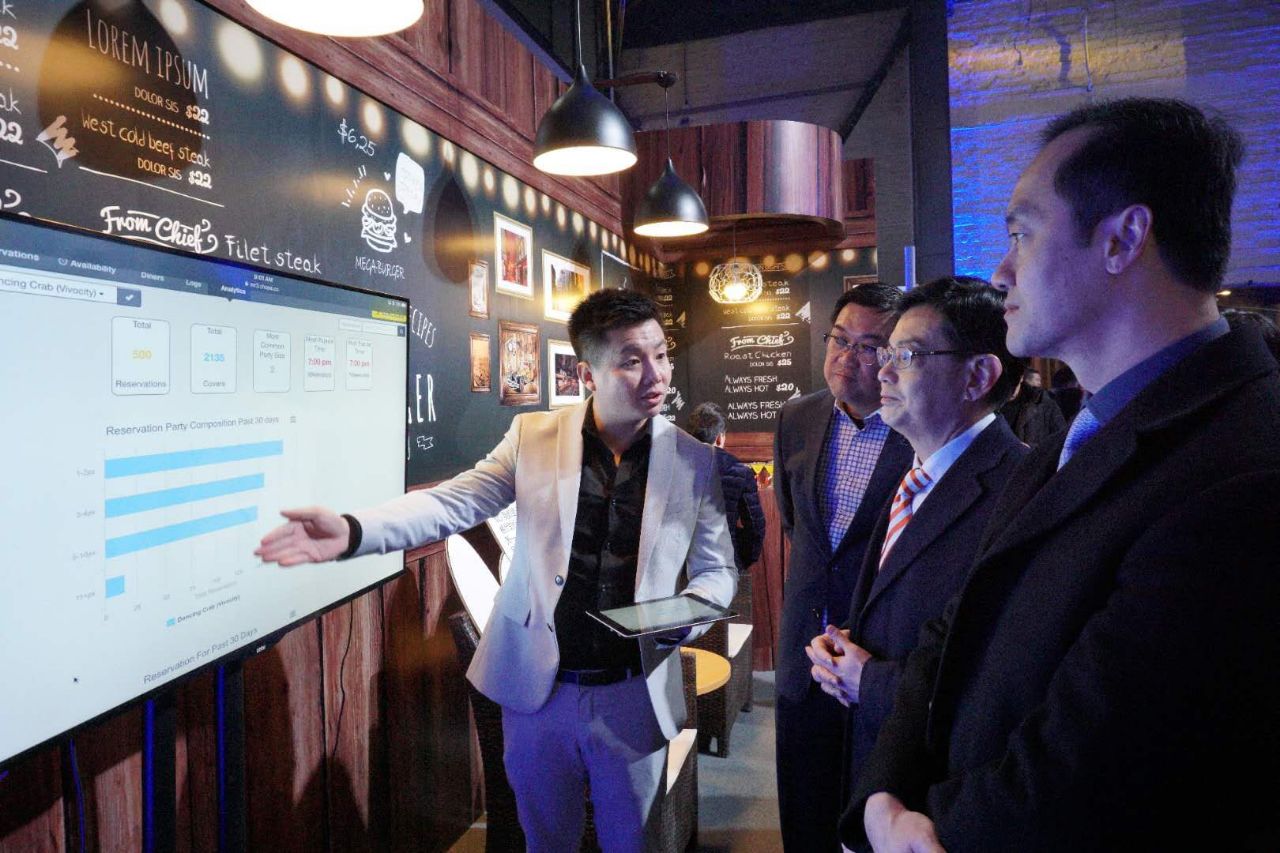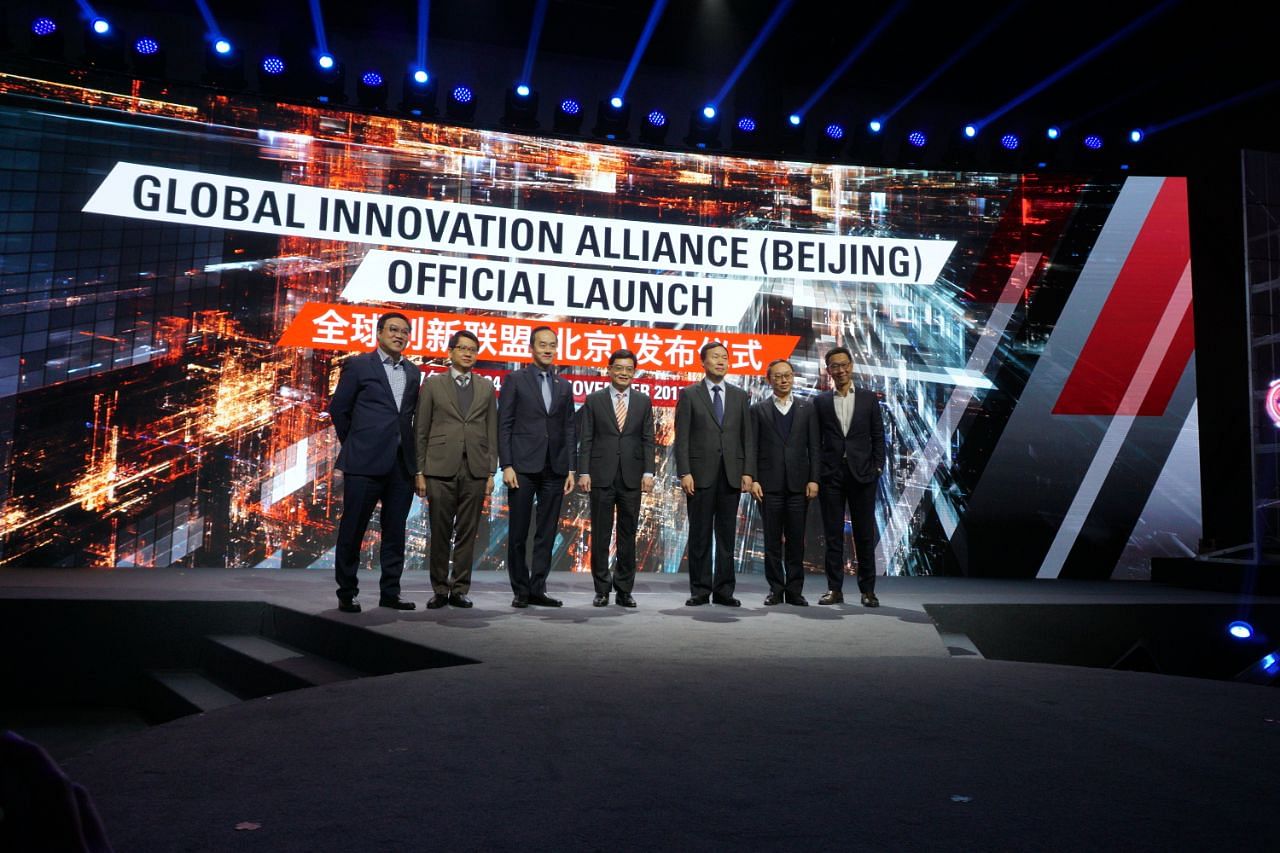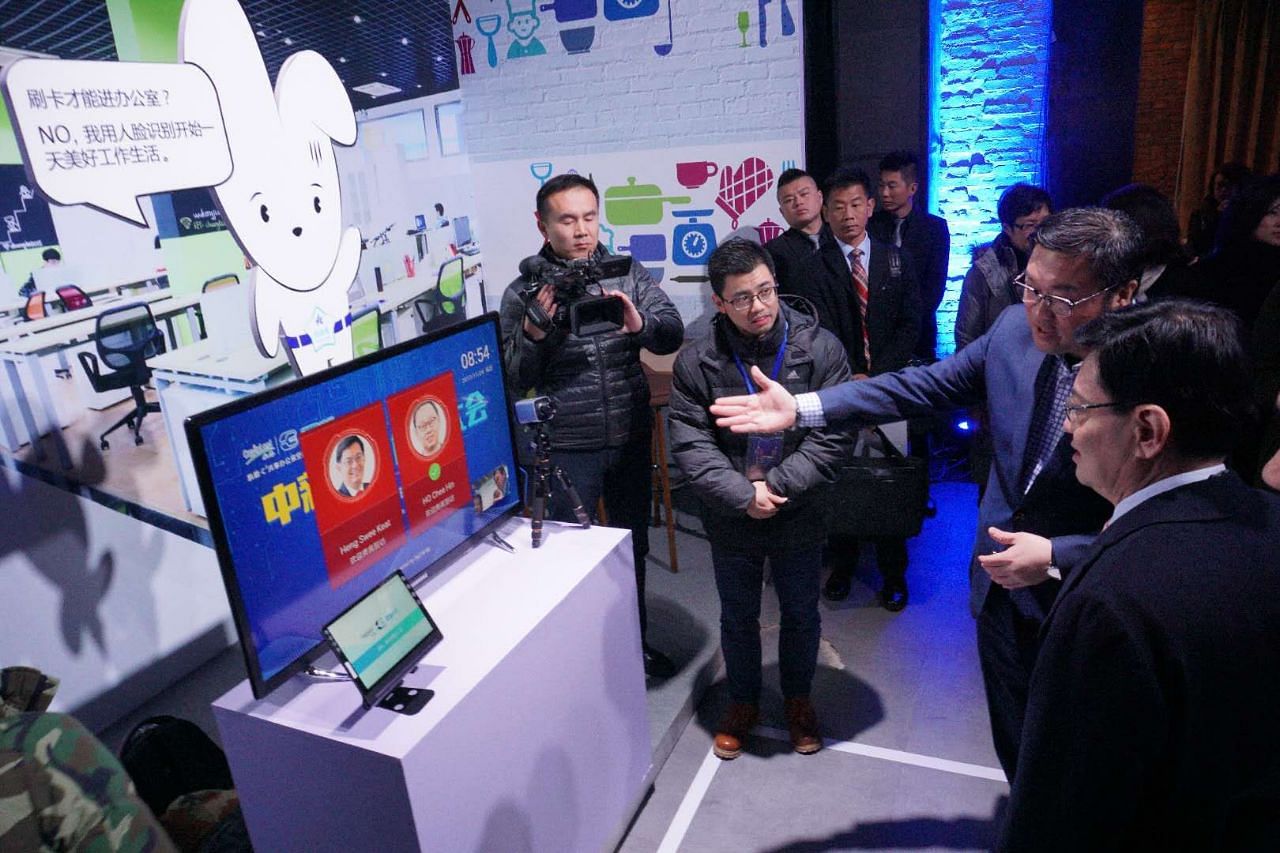New initiative launched to connect Singapore and China tech firms
Sign up now: Get ST's newsletters delivered to your inbox

Finance Minister Heng Swee Keat (second from right) and Senior Minister of State for Trade and Industry and National Development Koh Poh Koon (right) touring the exhibits at the IE Singapore-CapitaLand Tech and Innovation Summit at 798 Art Zone in Beijing.
ST PHOTO: LIM YAN LIANG
Follow topic:
BEIJING - The Singapore Government launched in China on Friday (Nov 24) the first overseas initiative under the Global Innovation Alliance (GIA), a network to promote entrepreneurship and innovation with a focus on technology.
The GIA (Beijing) initiative will see IE Singapore create launch pads for Singapore firms to connect with the business community in China, and let both sides benefit from the innovative ideas springing from their respective start-up scenes.
A key reason China has been chosen as the first springboard for GIA is the vibrancy of the Chinese start-up ecosystem, with more than 10,000 new start-ups registered every day.
Speaking at the launch event at the 798 Art District in Beijing, Minister for Finance Heng Swee Keat noted that Chinese President Xi Jinping had prioritised strategic initiatives aimed at innovation at last month's 19th party congress, and that local governments across China have already begun taking measures to promote innovation and commercialisation of research and development.
"I see a lot of potential where both countries can work together in the area of innovation," Mr Heng said.
"With so much energy and potential in the Chinese innovation ecosystem, what is important is to bring together people with many talents and from diverse backgrounds to work together, so that they can exchange ideas and inspire one another to experiment and create new solutions that can be of value to others."
GIA is a key recommendation in the February report by the Committee on the Future Economy, which is chaired by Mr Heng.

In his Budget speech in the same month, Mr Heng said the initiative aims to give Singaporeans opportunities to gain overseas experience, build networks, and collaborate with their counterparts in other innovative cities.
Friday's event also saw nine start-ups pitch their ideas at the IE Singapore-CapitaLand Tech and Innovation Summit, with the winners getting funding and a chance to testbed their solutions at CapitaLand's office buildings, shopping malls and residential developments in China and Singapore.

Among the nine finalists are three Singapore start-ups, including fintech firm M-Daq, facility management analytics firm Smart Clean, and ViSenze, an artificial intelligence company.
CapitaLand China CEO Lucas Loh said his firm is a prime example of how technology can improve even the most traditional of companies, such as real estate developers.
Technologies it has first implemented in China and are now rolling out across more of its projects include facial recognition at entry points of its office buildings.
"China has a wide pool of available opportunities as well as ideas (and) we see an abundance of opportunities to tap new applications of technology in areas related to our business," he said.
Mr Heng is on a five-day visit in China this week for a series of meetings. Before arriving in Beijing, he was in Suzhou to co-chair the 11th Singapore-Jiangsu Cooperation Council (SJCC) meeting and launched the NUS Enterprise's Block71 Suzhou, a hub for start-ups located in Suzhou Industrial Park.
While in Beijing, Mr Heng will also visit Tsinghua University and deliver an address outlining his views about Singapore's relations with China to students there. He will also call on senior Chinese officials, and visit ride-sharing giant Didi Chuxing.
He is accompanied by Senior Minister of State for Trade and Industry and National Development Koh Poh Koon, as well as officials from the ministries of Finance, Education, and Trade and Industry, as well as from IE Singapore.
China is an ideal test bed for novel ideas for Singapore real estate titan, CapitaLand
For Singapore real estate titan CapitaLand, two distinctive traits make China a compelling test bed for trying out new technologies.
The sheer number volume of customers in the world's most populous country means pilot projects here will quickly yield a treasure trove of data about their customer experience, which translates into faster iteration and maturation of new ideas, said CapitaLand China CEO Lucas Loh.
One statistic bears out Mr Loh's point.
The firm's app-based rewards programme, CapitaStar, has 860,000 members in Singapore, but nearly four million in China.
"The scale we've achieved in China means that, within a short time, we have enough data to prove whether an idea is workable," he said on Friday (Nov 24).
With 190 properties ranging from malls to offices and homes across 52 Chinese cities, new ideas also undergo rigorous and varied testing before they are brought to markets like Singapore.
But it is the Chinese people's receptivity to new ways in China that makes possible the kind of large-scale experimentation needed to refine and realise novel ideas.
"The high speed of development in China in recent decades means that the Chinese have a high tolerance for change," Mr Loh told reporters. "It is when things stand still that they feel uneasy."
In comparison, Singaporeans "need more persuasion" before accepting new methods such as cashless payments, he said.
CapitaLand first implemented facial recognition to replace access cards at its Raffles City office tower in Beijing this April, before it began a pilot test this month at its Capital Tower headquarters in Singapore.
It also helps explain why CapitaStar has more functions in China, such as parking reservations and in-app payments, than back home.
But it can be a two-way exchange. Homegrown restaurant reservation platform Chope, for instance, successfully expanded to Shanghai in 2015, and today partners 430 restaurants there. It has plans to enter expand into Beijing next year.
IE Singapore group director Ho Chee Hin said more Singapore firms are recognising that China represents an opportunity for them to expand and scale-up, while China's emphasis on research and development means that it has become a source of technologies that can help these firms develop further.
On Friday (Nov 24), CapitaLand signed three memorandas of understanding (MOUs) with Chinese partners to further hone its technological edge.
One agreement will see CapitaLand set up more incubators for Singapore companies across China, while another will expand the rollout of facial recognition technology to more of its properties in China and Singapore. It will also work with China UnionPay to add cashless payments capabilities to CapitaStar.
"By embracing technological disruption, CapitaLand is in a strong position to build real estate of the future, and continue to be relevant to the community," said its group CEO Lim Ming Yan.

